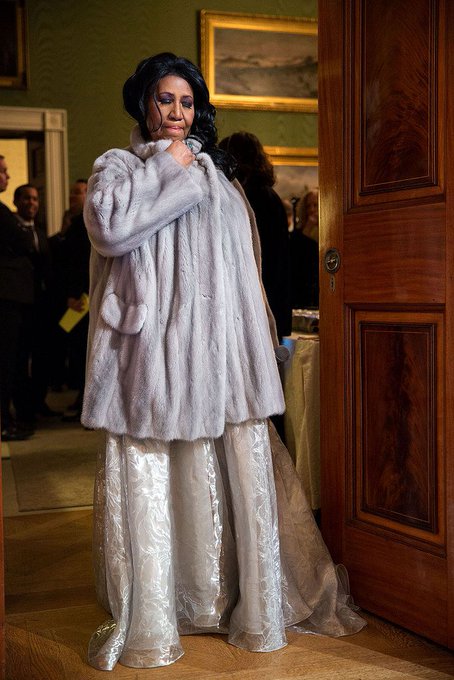
Barack Obama honored the passing of the late and great Aretha Franklin by releasing an official about her on Thursday morning, describing her legacy as “more enduring” than “royalty.”
In an official statement from Barack and Michelle Obama, they wrote,
“America has no royalty. But we do have a chance to earn something more enduring. Born in Memphis and raised in Detroit, Aretha Franklin grew up performing gospel songs in her father’s congregation. For more than six decades since, every time she sang, we were all graced with a glimpse of the divine. Through her compositions and unmatched musicianship, Aretha helped define the American experience.
“In her voice, we could feel our history, all of it and in every shade—our power and our pain, our darkness and our light, our quest for redemption and our hard-won respect. She helped us feel more connected to each other, more hopeful, more human. And sometimes she helped us just forget about everything else and dance.
“Aretha may have passed on to a better place, but the gift of her music remains to inspire us all. May the Queen of Soul rest in eternal peace. Michelle and I send our prayers and warmest sympathies to her family and all those moved by her song.”
Shortly after releasing the statement, Obama took to Twitter, writing, “Aretha helped define the American experience. In her voice, we could feel our history, all of it and in every shade—our power and our pain, our darkness and our light, our quest for redemption and our hard-won respect. May the Queen of Soul rest in eternal peace.”
Obama and Franklin had long had a mutual admiration for one another, with Franklin infamously singing at Obama’s first inauguration. In a 2016 New Yorker article, Obama said of Franklin,
“Nobody embodies more fully the connection between the African American spiritual, the blues, R&B, rock and roll — the way that hardship and sorrow were transformed into something full of beauty and vitality and hope. American history wells up when Aretha sings. [She] captures the fullness of the American experience, the view from the bottom as well as the top, the good and the bad, and the possibility of synthesis, reconciliation, transcendence.”



